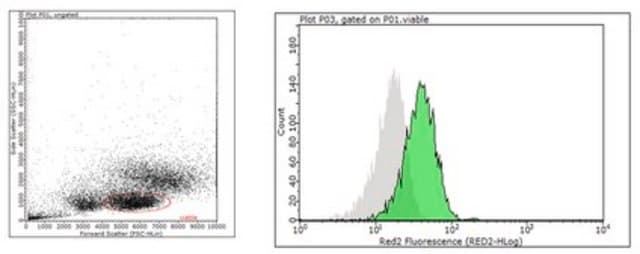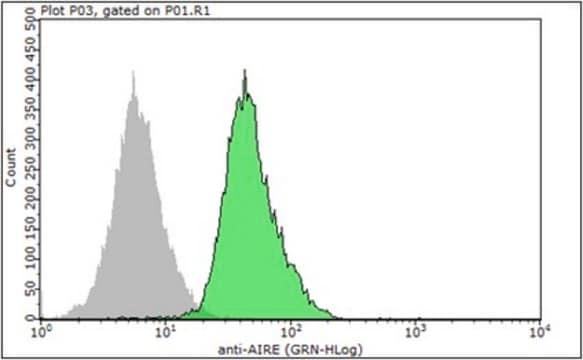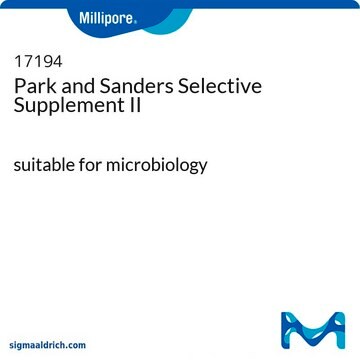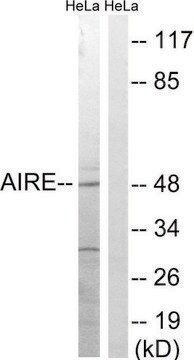09-456
Anti-AIRE Antibody
Upstate®, from rabbit
Synonim(y):
APECED protein, Autoimmune polyendocrinopathy candidiasis ectodermal dystrophy
protein, autoimmune polyendocrinopathy candidiasis ectodermal dystrophy 2
autoimmune regulator
, autoimmune regulator (APECED protein), autoimmune
About This Item
Polecane produkty
pochodzenie biologiczne
rabbit
Poziom jakości
forma przeciwciała
affinity purified immunoglobulin
rodzaj przeciwciała
primary antibodies
klon
polyclonal
oczyszczone przez
affinity chromatography
reaktywność gatunkowa
mouse
producent / nazwa handlowa
Upstate®
metody
western blot: suitable
izotyp
IgG
numer dostępu NCBI
numer dostępu UniProt
Warunki transportu
wet ice
docelowa modyfikacja potranslacyjna
unmodified
informacje o genach
mouse ... Aire(11634)
Powiązane kategorie
Opis ogólny
Specyficzność
Immunogen
Zastosowanie
Western blot: 1:1000
Inflammation & Immunology
Developmental Signaling
Transcription Factors
RNA Binding Protein (RBP)
Jakość
Western Blot:
A 1:1000 dilution of this lot detected AIRE in murine thymus lysate
Opis wartości docelowych
Postać fizyczna
Przechowywanie i stabilność
Komentarz do analizy
Murine thymus tissue lysate
Informacje prawne
Oświadczenie o zrzeczeniu się odpowiedzialności
Nie możesz znaleźć właściwego produktu?
Wypróbuj nasz Narzędzie selektora produktów.
Kod klasy składowania
10 - Combustible liquids
Klasa zagrożenia wodnego (WGK)
WGK 2
Temperatura zapłonu (°F)
Not applicable
Temperatura zapłonu (°C)
Not applicable
Certyfikaty analizy (CoA)
Poszukaj Certyfikaty analizy (CoA), wpisując numer partii/serii produktów. Numery serii i partii można znaleźć na etykiecie produktu po słowach „seria” lub „partia”.
Masz już ten produkt?
Dokumenty związane z niedawno zakupionymi produktami zostały zamieszczone w Bibliotece dokumentów.
Nasz zespół naukowców ma doświadczenie we wszystkich obszarach badań, w tym w naukach przyrodniczych, materiałoznawstwie, syntezie chemicznej, chromatografii, analityce i wielu innych dziedzinach.
Skontaktuj się z zespołem ds. pomocy technicznej








